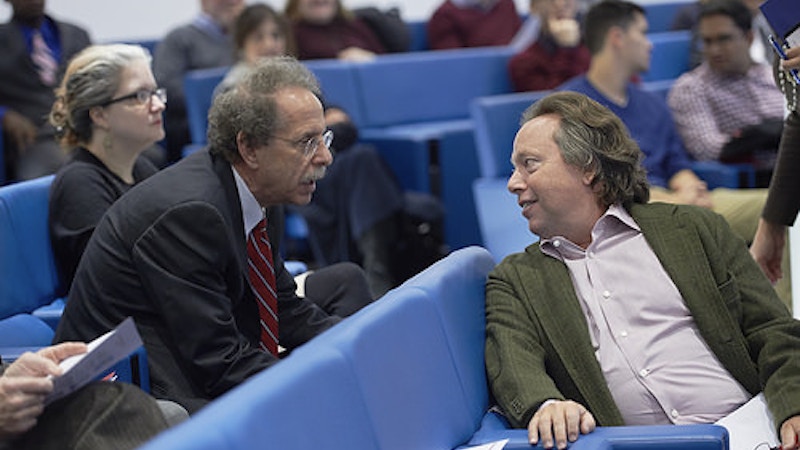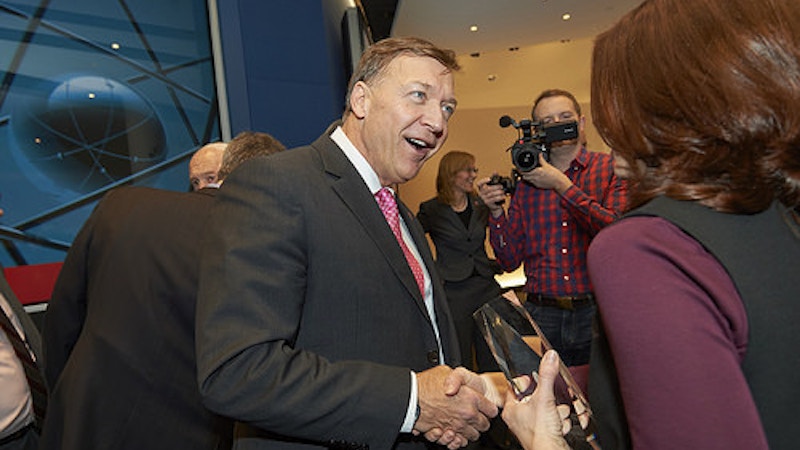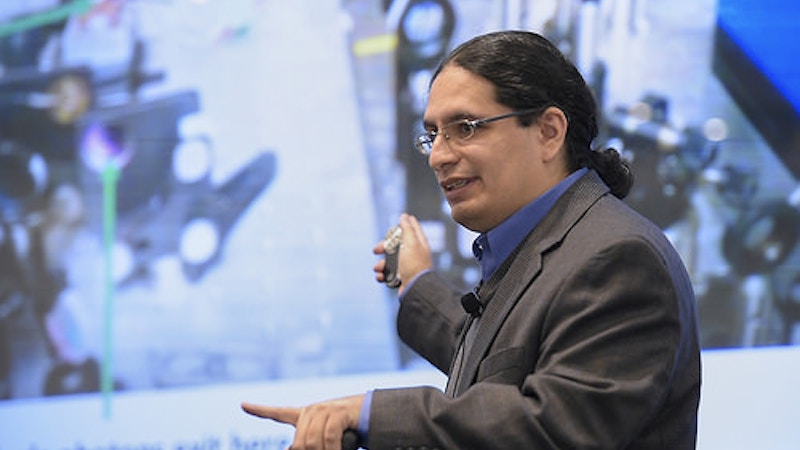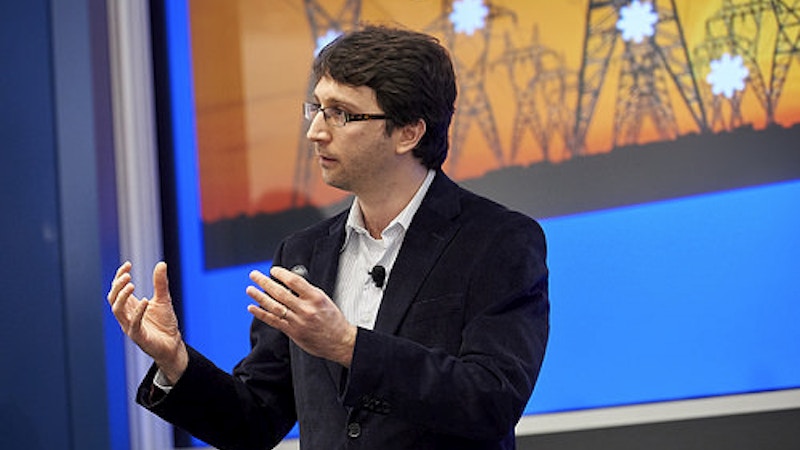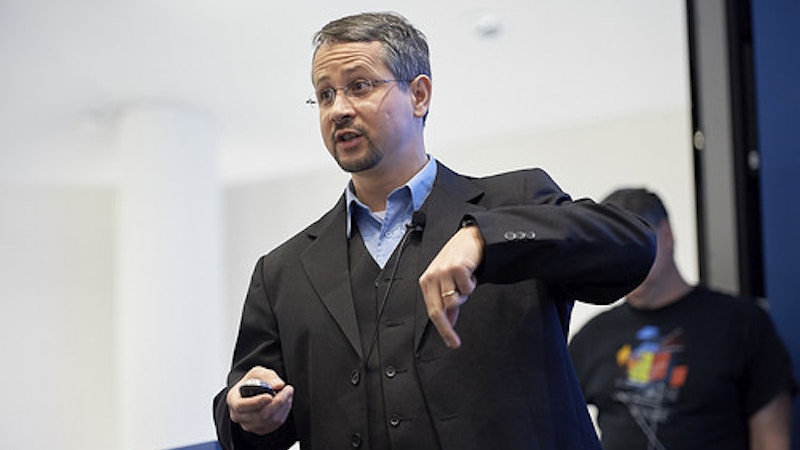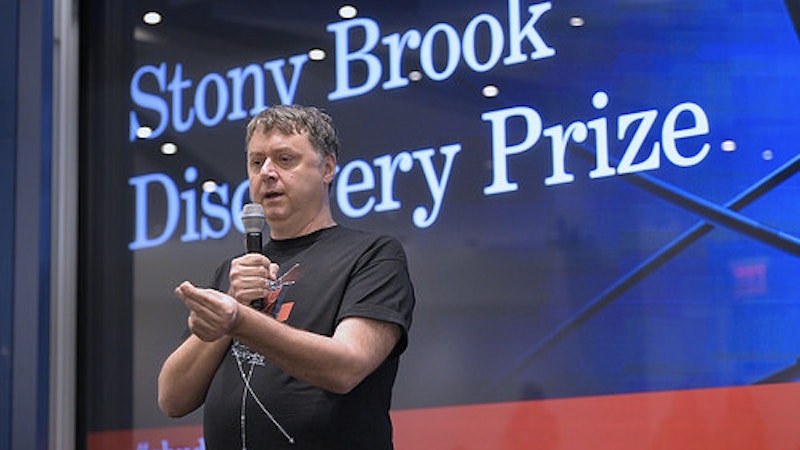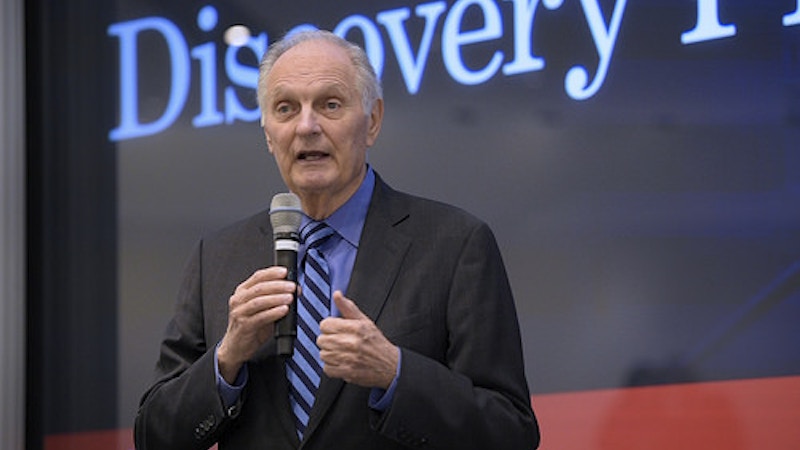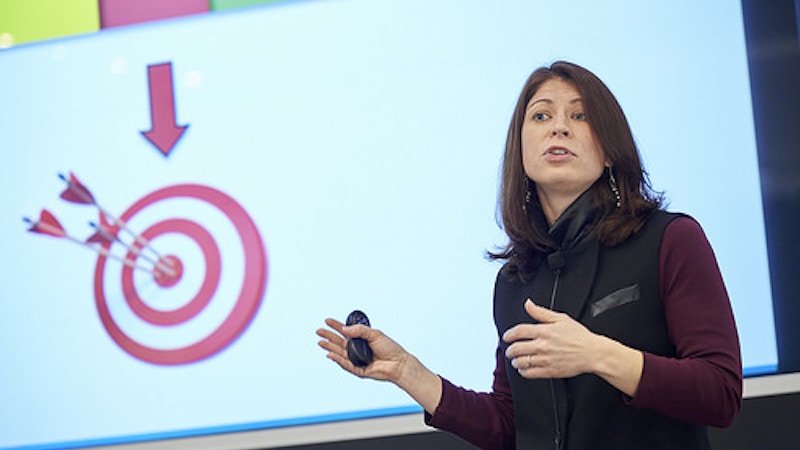Stony Brook Discovery Fund Challenge Held at Simons Foundation
In April 2014, Stony Brook University launched the Discovery Fund, an initiative to support the university’s discovery-driven research through philanthropy. Established with a $500,000 initial donation from the Stony Brook Foundation, the fund is intended to encourage private donors’ investment in basic scientific research at Stony Brook at a time when federal support of basic research is waning.
The fund was inspired by the newly created Science Philanthropy Alliance (SPA), a consortium of foundations working to promote philanthropic support of discovery-driven research. Together with five other SPA members, the Simons Foundation is committed to informing individuals and foundations of the great importance and inherent value of supporting fundamental research. SPA encourages other organizations to establish funds for discovery-driven science, and uses its members’ combined funding expertise to create and provide necessary resources for expanding philanthropic support into such research.
“At Stony Brook, philanthropy creates new opportunities and a margin of excellence in all that we do,” says Samuel L. Stanley, Jr., president of Stony Brook University. “With the advent of the Stony Brook Discovery Fund, we can continue to support our faculty as they seek to advance discovery through basic science research.”
As part of the initiative, Stony Brook held its first Discovery Fund Challenge and awarded its first $200,000 Discovery Prize on December 11 at the Simons Foundation. Four award finalists, each a Stony Brook early-career faculty member working in a STEM discipline, competed in the Discovery Fund Challenge, during which they were asked to communicate their research concepts in 10 minutes, clearly conveying the scientific meaning and significance to four judges and the general public. The presentations, together with proposals that were submitted prior to the event and presenters’ ability to respond clearly to questions asked after their presentations formed the basis of the judges’ decision.
Laurie Krug, whose laboratory researches herpes viruses associated with cancer, won the challenge and the 2014 Discovery Prize. Working with Balaji Sitharaman, Krug aims to use nanoparticles to deliver molecular scissors, which cut DNA into smaller pieces, at the site of virus infection. Her work is purely exploratory, but she hopes that it will be applied to basic research into fundamental biological questions, and eventually to the treatment of disease.
The finalists fulfilled the Discovery Fund mission — to support and promote fundamental research in the basic sciences — in different ways. Gábor Balázsi developed tools to alter the proportion of abnormal cells in tumors without introducing mutations, in an effort to discover how abnormal cells and cellular diversity affect cancer progression; Eden Figueroa created new technologies based on quantum mechanics, which he hopes could lead to a quantum processor that would make computers exponentially more powerful; and Emre Salman proposed a novel method for performing computations in energy-autonomous systems that ‘harvest’ power from ambient sources, a technology that would significantly increase energy efficiency.
Prior to the presentations, Paul Hoffman, president and CEO of the Liberty Science Center in Jersey City, New Jersey, provided insight into the importance and techniques of communicating science to the general public and philanthropic communities. Alan Alda, actor and founder of the Alan Alda Center for Communicating Science, spoke of the need to excite the public about the vitality of science, emphasizing that the beauty of knowledge is something that must not be lost on the public or on philanthropists, and President Stanley described the Discovery Fund and the award.
“The Discovery Fund is a means to champion Stony Brook faculty who dare to tackle the biggest ideas in science,” says Stanley. “The findings from basic research have transformed our lives, improved our health and well-being, and helped us understand our world and our universe.”
